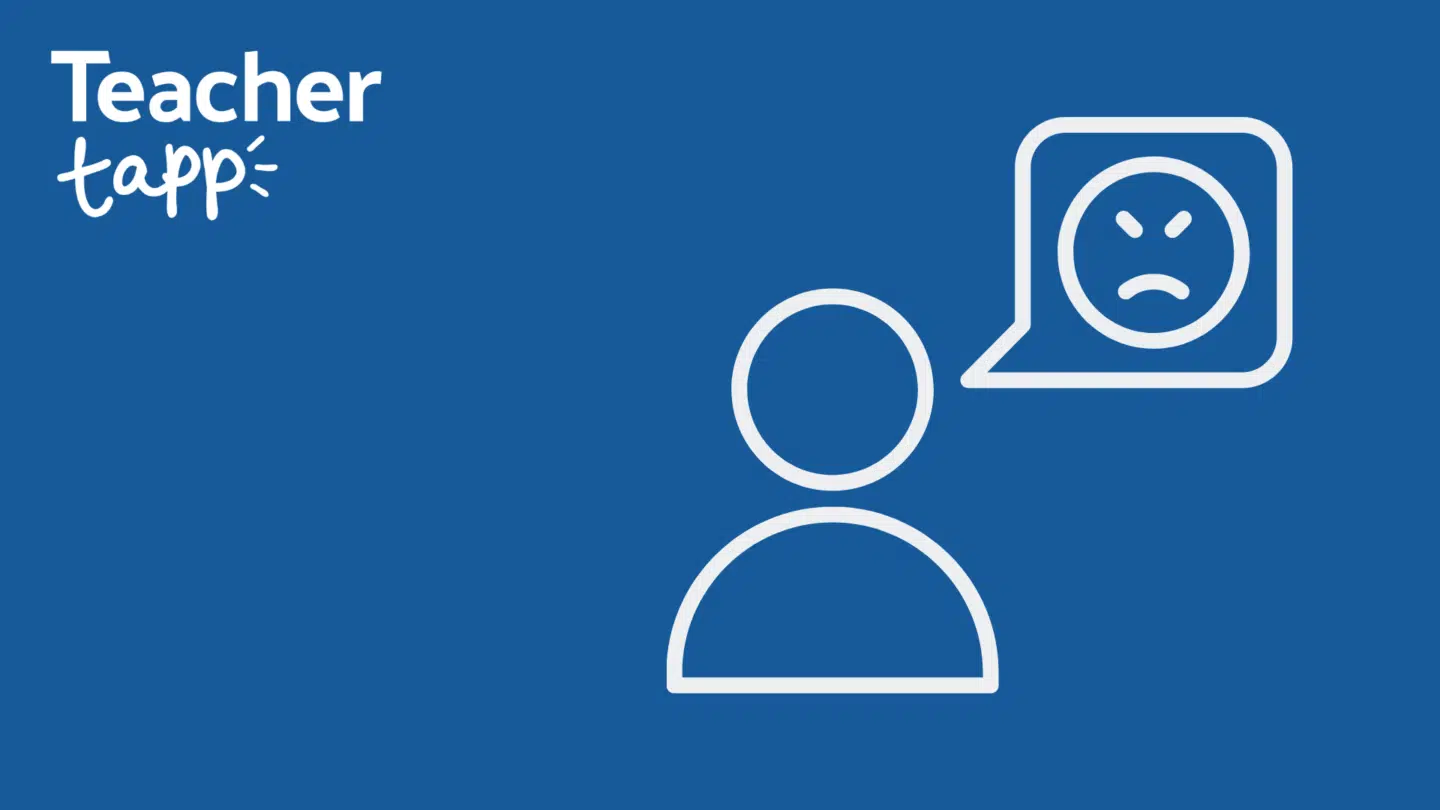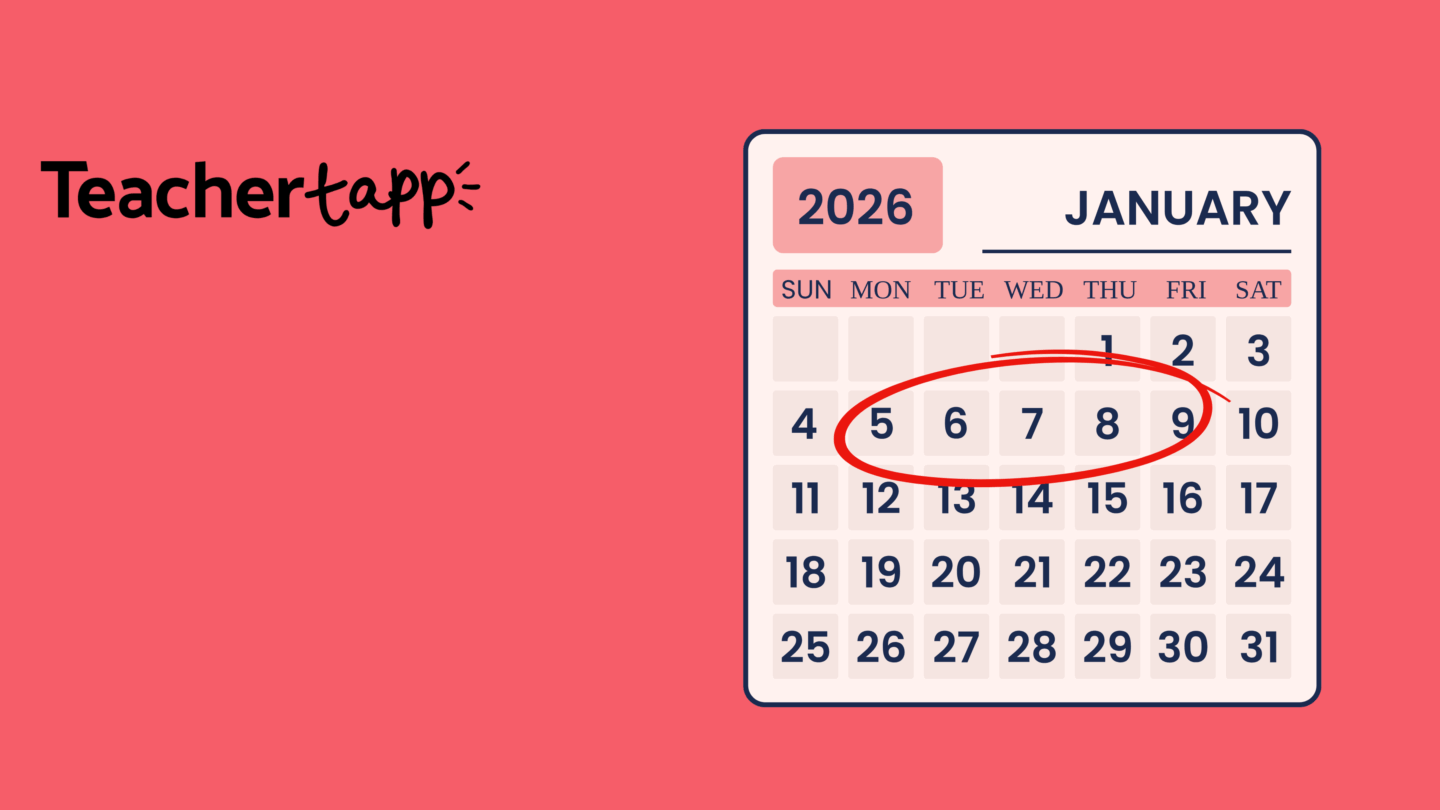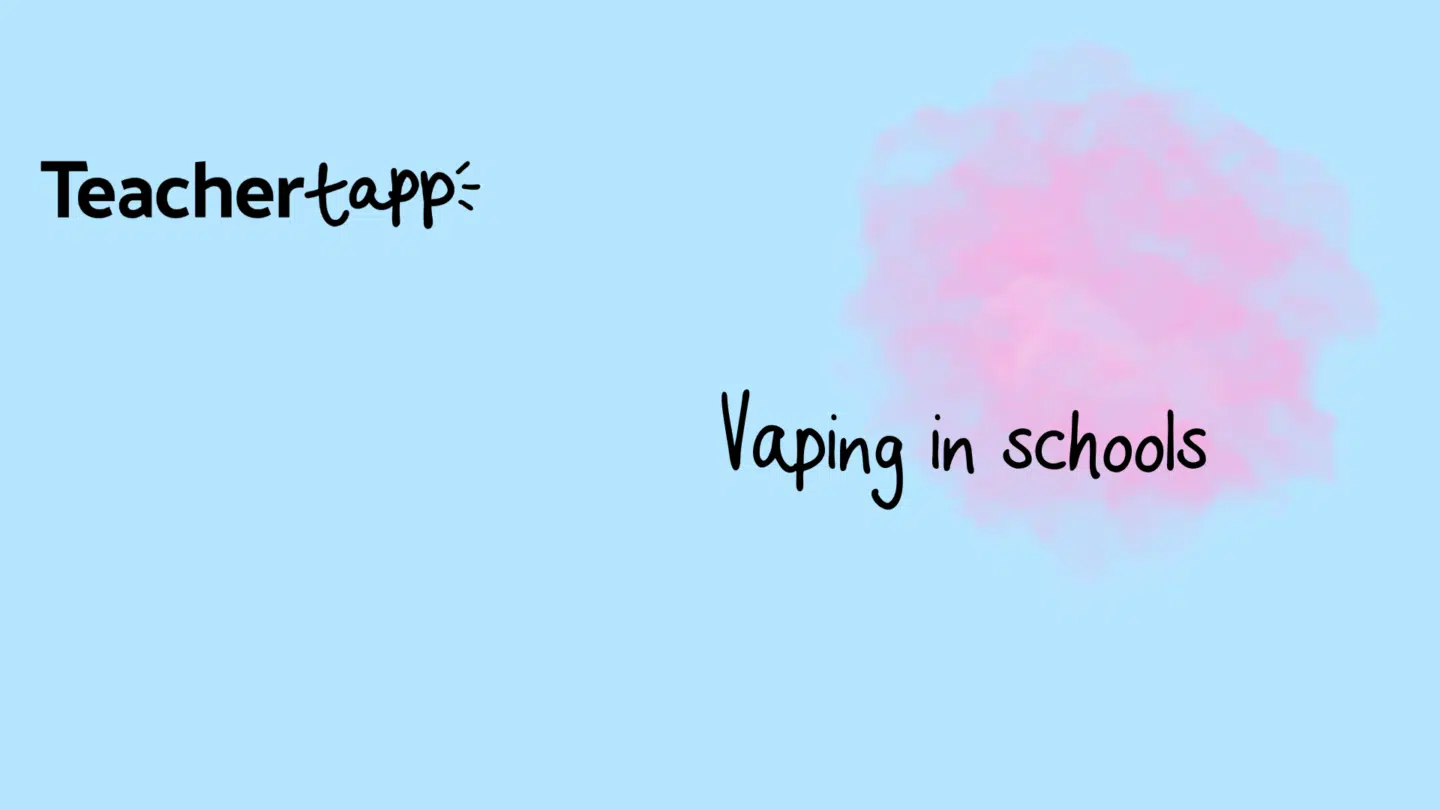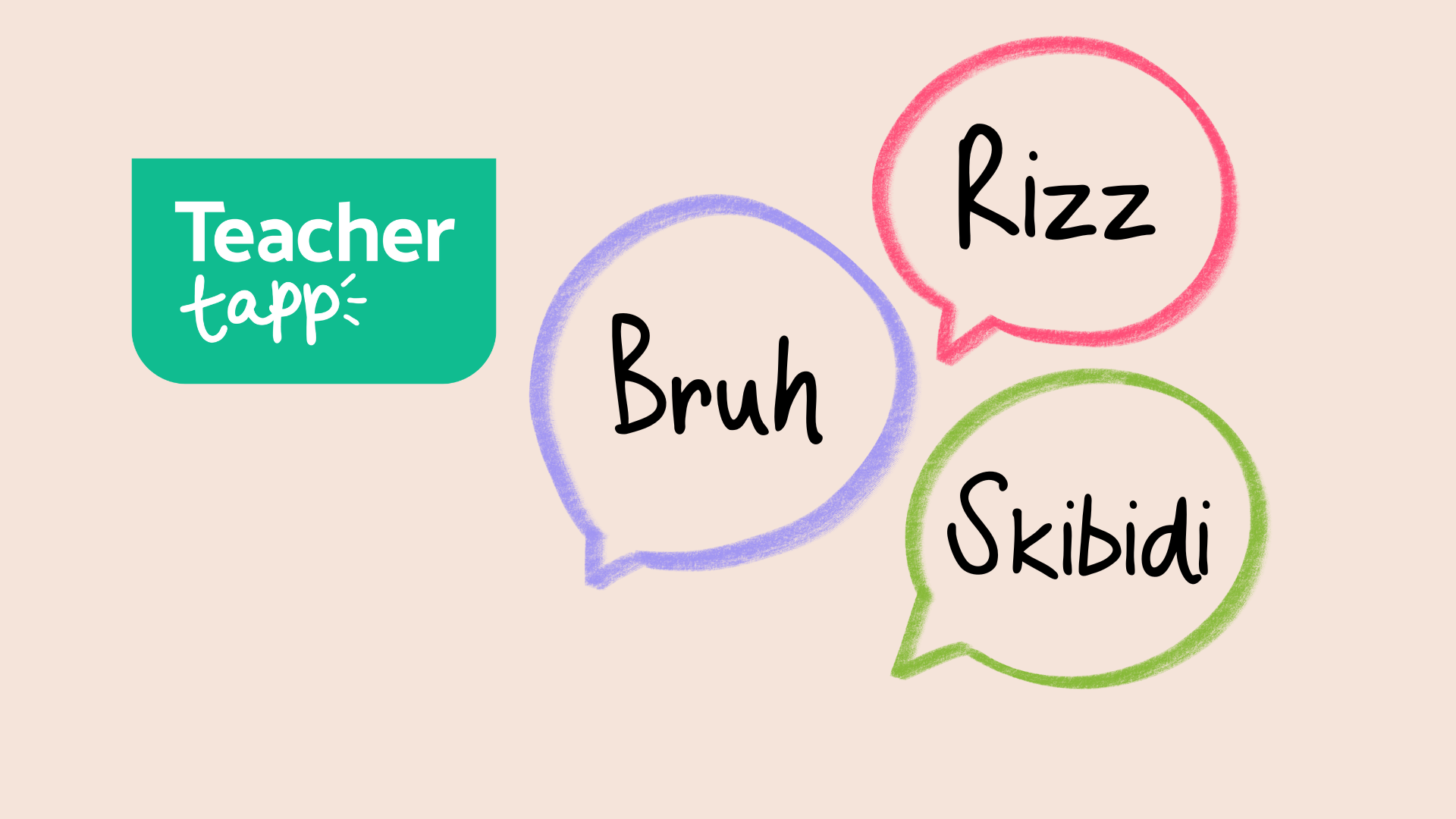
What slang are students using right now?
Young people have always had slang — but the words change fast. One year it’s “peng” or “sick,” the next it’s “skibidi” or “rizz.”
So what’s filling classrooms and playgrounds in 2025?
Over 2,000 Teacher Tappers told us the slang they’ve heard in 2025 — and the results show just how much online culture is driving the way pupils talk.
Big hitters 2025: Skibidi and Rizz
Two words dominated across almost every region and age group: Skibidi and Rizz. In fact, these were the top two most common responses for primary and secondary teachers.
- Skibidi (and its many variants, including “Skibidi Toilet”) was mentioned so often that one teacher begged: “Skibidi skibidi skibidi all the time – OMG MAKE IT STOPPPP 😭😭.”
- Rizz (short for charisma) was often paired with Skibidi, giving rise to mash-ups like “Skibidi Rizzler.”
Together, these two terms capture just how quickly TikTok, memes, and YouTube clips shape student chatter.
Most common primary and secondary slang…and what it means!
- Skibidi – A nonsense word from a viral meme/song.
“Skibidi toilet!” - Rizz – Charm or ability to flirt.
“He’s got rizz, Miss — watch him talk to anyone.” - Sigma – Someone independent, confident, and unbothered.
“I don’t care what they say, I’m a sigma.” - Cooked – Exhausted, ruined, or completely finished.
“Sir, my brain is cooked after that maths test.” - Bro – A casual way of addressing someone (not always male).
“Bro, can I borrow your pen?” - Slay – To do something really well or look great.
“Miss, your outfit slays today.” - Ohio – A meme word for something weird or surreal.
“This lesson feels like Ohio.” - 67 – A random number often used online as a joke or code for chaos.
“That science experiment was level 67 crazy.” - Aura – The vibe or energy someone gives off.
“He’s got a chill aura, innit.” - Locked in – Focused and determined.
“I’m locked in for this game, don’t distract me.” - Brainrot – A term young people use for low-effort, repetitive content (often AI-generated) that feels silly or meaningless but can still be weirdly addictive to watch.
“This video is total brainrot, but I can’t stop scrolling.”
When we compared the primary and secondary slang responses, one thing stood out: the secondary list is broader and more detailed, but it still contains almost everything in the primary list. In other words, secondary slang seems to expand upon primary slang rather than differ completely.
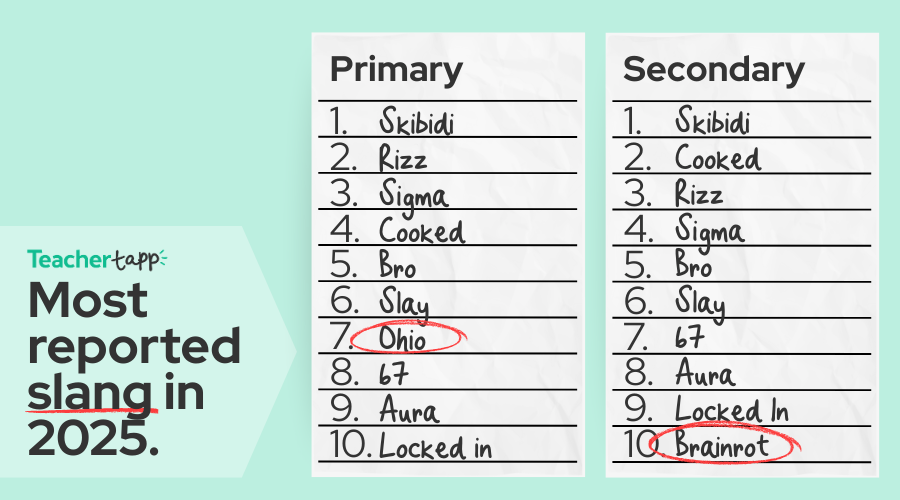
Regional flavours
When we checked your answers by region we discovered a few local twists:
- North East: “Shan” (bad), “Radge,” “Y’knar,” “H’away.”
- London: “Leng,” “Wahala,” “Jakes” (police), “‘Llow it” (stop it), “Government name.”
- Elsewhere: A handful of very specific terms like “Darlo finger” appeared.
But by and large, the internet drowns out local dialects — pupils in Cornwall and Cumbria are just as likely to shout “Skibidi Toilet” as those in London.
Teachers on the frontline
Many teachers admitted they struggle to keep up:
- “So many words I don’t even understand!”
- “It goes over my head, so I just smile and get on with the lesson.”
- “I usually ask what it means and get them to swap it for a more formal word.”
Others said they’ve tuned out entirely or banned terms outright when they become disruptive.
Most slang is silly, playful, and fleeting — just part of being young. But teachers also flagged some concerning trends:
- Misogynistic terms linked to Andrew Tate’s worldview.
- Homophobic or racist slurs, though mentioned less frequently, still cropped up.
- Sexualised terms like “gooning” worried some teachers because pupils may not understand the adult content behind them.
As one teacher summed it up: “All the lovely words of the slang rainbow — and some truly awful ones.”
Final thought
The slang of 2025 is dominated by memes, online trends, and influencers. While much of it is harmless (if slightly maddening to hear 100 times a day), some words carry negative or even harmful baggage.
Teachers can’t always keep up — and that’s okay. But being aware of what’s being said helps us understand the culture our pupils are steeped in.
👉 How does our list match up with what you have been hearing? Do you ban words in your classroom? Share your stories with us in the app — we’ll keep tracking the changing lexicon together!
